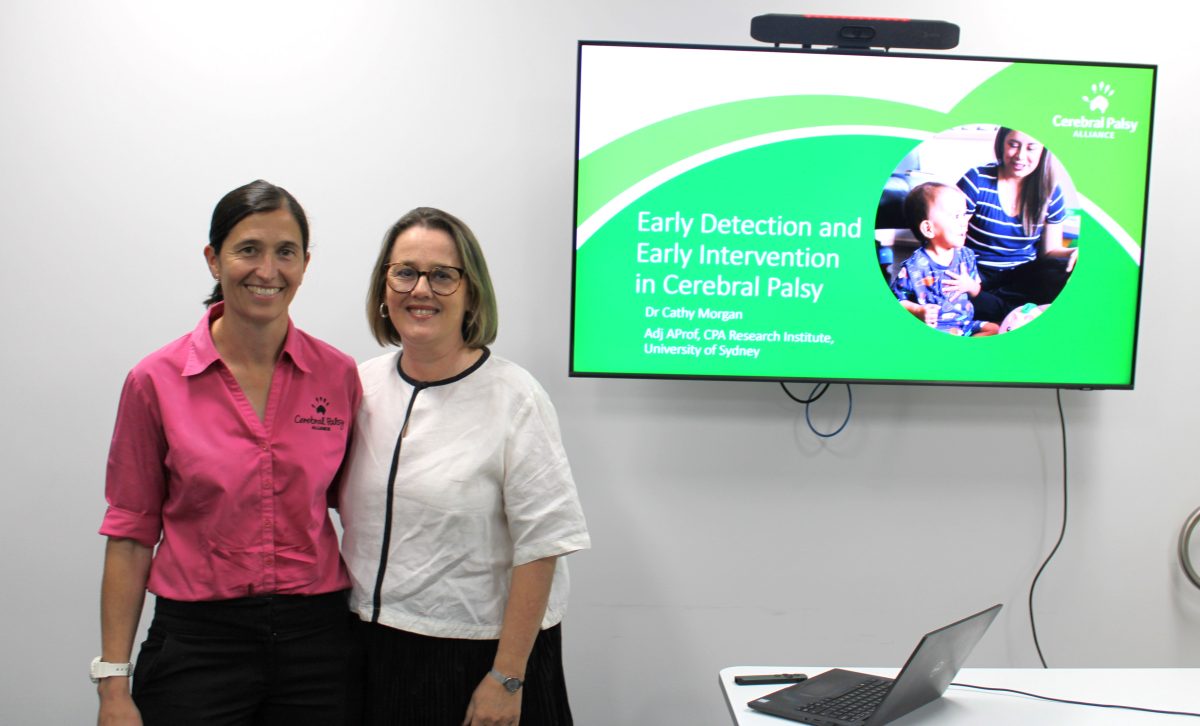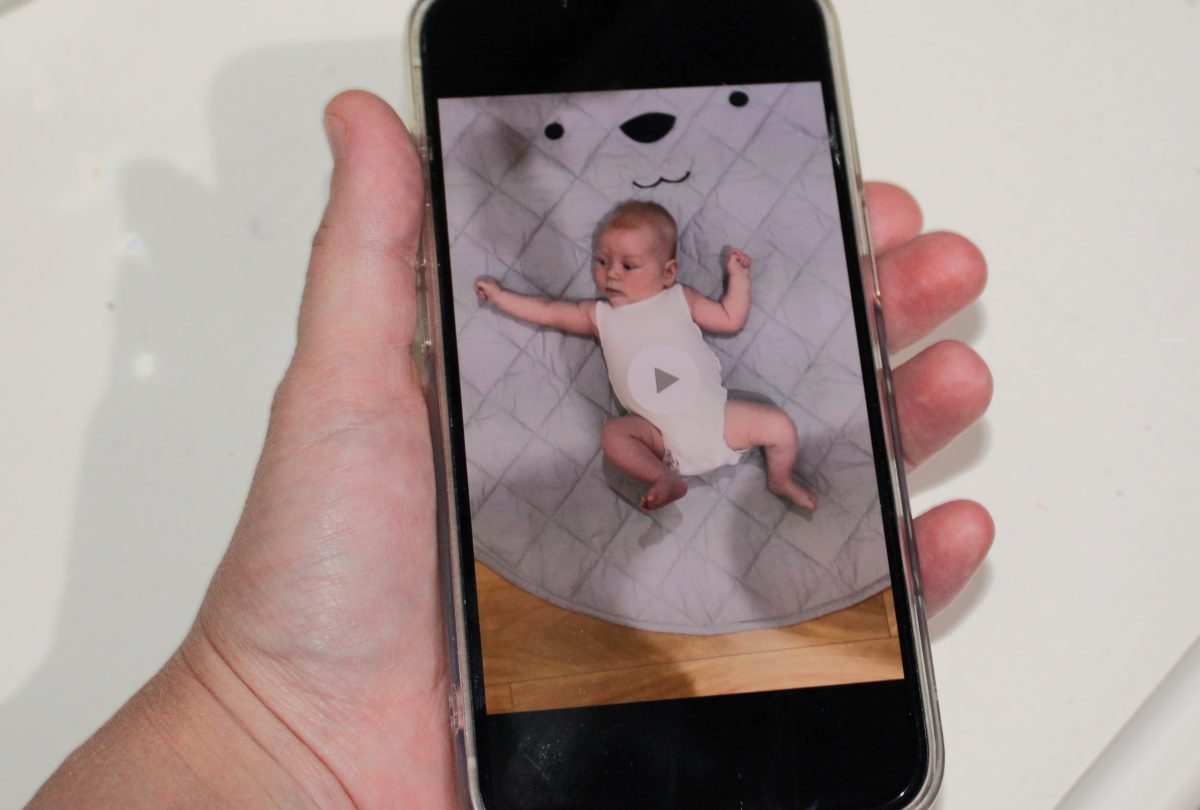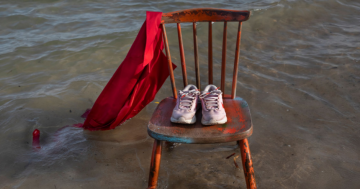
Cerebral Palsy Alliance physiotherapist Airlie Galvin and Early Detection and Intervention Program lead Dr Cathy Morgan want to improve awareness about an important assessment. Photos: Keeli Royle.
Children with cerebral palsy are missing out on early diagnosis despite parents having access to an extremely accurate test that they can conduct in the comfort of their own home with a smartphone in the first months of their baby’s life.
Cerebral palsy is the most common physical disability in children, with around 34,000 people living with the condition in Australia, but for many families, receiving a diagnosis can still be a long and difficult process which can delay access to funding and important services.
Identifying the risk and providing pathways for infants under 12 months is something Cerebral Palsy Alliance’s Early Detection and Intervention Program Lead Dr Cathy Morgan is passionate about improving.
“Babies are missing out and that’s what I want to see change,” Dr Morgan said.
“Pretty much what is happening now is only about 25 per cent of kids with cerebral palsy are identified in the first six months of life, just under 50 per cent by one, and then after one is the other 50 per cent, and some of those aren’t until three.”
A key tool available to help families identify the potential risk early is right at their fingertips.
“One of the most accurate assessments for detecting cerebral palsy early is a video-based assessment of an infant just moving spontaneously,” Dr Morgan said.
“It’s not the only assessment we use but it’s so good because you don’t have to handle the baby; a parent can take the video on their phone and send it in so if you’re in a remote community or you don’t want to come into the hospital, families can, with a few simple instructions, take the video themselves and a trained person can look at the video and say, ‘Your baby is low-risk for cerebral palsy’ or ‘Let’s follow it up’.
“That assessment, especially between nine to 16 weeks is the peak time; it is about 95 per cent sensitive to detecting cerebral palsy.”
The general movements assessment is common practice within neonatal intensive care units around the country which helps target an at-risk group, but for the half of children living with cerebral palsy who aren’t born prematurely, they can miss out on the limited window in which the assessment is effective.
Cerebral Palsy Alliance physiotherapist and qualified assessor Airlie Galvin said more awareness was needed throughout the Illawarra that assessments and resources like this were available to ensure parents utilised the assessment if needed and got an early diagnosis.
“We’re still not getting babies with a confident diagnosis at 12 or 13 weeks of age and there is the potential for that to be given,” Airlie said.
“I have had one child since I’ve been in the Wollongong team that was diagnosed at three weeks of age, and this will be my sixth year here, and that’s one baby, which to me isn’t good enough.”

Parents can film the assessment at home on their phone which can be reviewed by a professional.
Even if the assessment does not provide an immediate outcome, in combination with other resources such as an MRI, it could help to build a clearer image of the individual’s situation and tailor therapies accordingly.
“I would like more people to know about it because I feel that you could capture that video in that window, nothing might happen and then maybe at six months you could retrospectively watch that video and put pieces of that puzzle together and maybe get that diagnosis then to be able to get that kid into services,” Airlie said.
“Having that ‘at-risk of cerebral palsy’ diagnosis, even if it’s not cerebral palsy but ‘at-risk’, they get access to NDIS funding.
“If they get access to funding, they get access to therapy at the time they need it rather than not being able to get something until two years of age.”
Access to these services earlier rather than later can help health professionals tap into a key developmental stage and equip families with tools to improve outcomes.
“It’s a critical period the first 12 months of life and if only half the kids are getting anything in that first year that’s quite concerning,” Dr Morgan said.
“If you think about what a newborn baby does, it’s pretty much nothing, and by the time they’re one they’re looking, reaching, holding things, moving, some of them are walking, some are standing – so much has changed.
“We know that speech and language, cognition, all of these things just change so rapidly; the brain is able to form new connections, and we want to harness that neuroplasticity while the brain is capable of doing so much change.”
The Cerebral Palsy Alliance works with allied health, pediatricians, GPs and other health professionals to try to improve education within the sector so that they can refer concerned parents to the service.
Greater public awareness will also help parents be more aware of their options within certain timeframes and advocate for their child rather than just waiting.
With further investment and manpower, Dr Cathy Morgan would like to see this assessment as standard practice for every child to ensure no-one slips through the cracks.
“What we would really like to do in the future is to use this assessment to screen babies everywhere,” she said. “Just like for hearing, when you have a newborn they have a hearing test and every single newborn baby across the country has that test, and the rate of hearing impairments that are picked up from those are similar to the rate of cerebral palsy in Australia so we know it’s not outside the realm of possibility.”
To find out more about cerebral palsy and access resources visit the Cerebral Palsy Alliance website.









